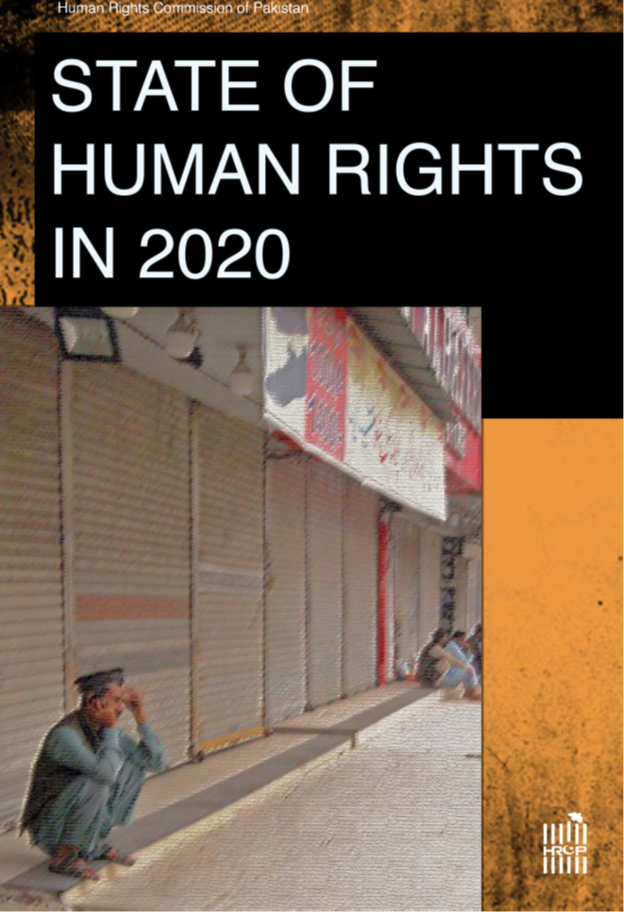HRCP’s flagship annual report State of Human Rights in 2020 documents widespread human rights violations
by HAH Special Correspondent
Islamabad: The novel Coronavirus that swept the globe last year infected and killed millions. The pandemic battered economies and social fabric. Pakistan and Gilgit-Baltistan were no exceptions.
The beginning of the pandemic and consequent lockdowns widened social inequalities, increased poverty, domestic violence, unemployment, curbs on fundamental rights, freedoms, particularly freedom of expression and assembly. It also exposed the systemic inefficiencies in governance, health, education, worsened conditions in prisons and the vulnerabilities of prisoners, says the Report on Status of Human Rights 2020.
“The exponential spread of Covid-19 has affected nearly every aspect of life, including a broad spectrum of human rights, with violations exacerbated by structural discrimination and existing socioeconomic disparities,” the report released online on Monday by the Human Rights Commission of Pakistan.
The report states that there was no let-up in ongoing violations of human rights by state apparatus with enforced disappearances and police excesses continuing through the year.
The virus appears to feed on inequality. Millions of people across the world including Pakistan fell into extreme poverty, as a result of the pandemic as varying levels of lockdown from early 2020 onwards brought the global economy to a grinding halt and resulted in unprecedented business closures and layoffs. The labour workforce was badly affected as a consequence.
As hospitals became inundated with infected patients and the healthcare system began to be overwhelmed, medical professionals went up in arms for being forced to work in hazardous conditions without adequate safety gear and other special measures. They accused the government of failing to provide sufficient personal protective kits and of reprisal in the form of official reprimands and police brutality when they went public or protested. Instead of reaching out to frontline medical workers, the government initially questioned their professional commitment and even accused them of working for the opposition. Other frontline workers such as sanitation staff had no one to speak for them and continued to risk their lives to make ends meet amid a pandemic.
Moreover, the shortage of and hindrances in free Covid-19 testing left many undiagnosed and only a select few were able to afford the costly test through private medical labs.
The top leadership’s mixed messages about the nature and dangers of the virus, along with remedial measures, compounded the problem and sowed confusion among the public. Inconsistencies in policy between the federal and provincial governments created further fissures and continue to this day, revealing a worrying lack of seriousness amid a raging pandemic.
Society’s deep-rooted misogyny reared its ugly head when Maulana Tariq Jameel, an influential cleric who enjoys unprecedented access to the corridors of power while sharing a platform with the Prime Minister on live television — the purpose of which was to raise funds to combat Covid-19 — claimed that women’s ‘lack of modesty’ was the cause of the pandemic. Such attempts to pander to the religious right were witnessed later as well when the government refused to close down mosques, especially during Ramazan when special prayers can be potential super-spreaders events, even though the same was underway in more conservative countries such as Saudi Arabia. As a nationwide lockdown was reluctantly imposed in late March, bringing life to a standstill especially in the cities and major towns, its pinch was felt most severely by low-income groups.

The High Asia Herald is a member of High Asia Media Group — a window to High Asia and Central Asia

